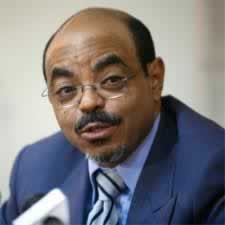Sadc Tribunal: Maputo spot on
Granted, it also took quite a comic dimension with Anglican Archbishop Sentamu, from his adopted climes afar, coming close to pointing out that the dissolution of the tribunal could be one of the reasons why he would not wear his dog collar again.
Of course, he is none other than the notorious Ugandan-born cleric who cut up his revered dog collar five years ago with the hope that he would wear it again when President Mugabe leaves office.
So ahead of Maputo, Sentamu urged leaders to retain the disbanded outfit or they would be in Mugabe’s league.
Not to be outshone in this holiness, Desmond Tutu, another man of the cloth in the same church, took to a video and for the whole 10 minutes interceded for this “vital ally of its citizens, investors and future development, and victims of state-sponsored human rights abuses will have nowhere to turn”.
Alas, not a prayer could save the tribunal!
In Maputo came this resolution: that “Summit considered the Report of the Committee of Ministers of Justice/Attorneys-General and the observations by the Council of Ministers and resolved that a new Protocol on the Tribunal should be negotiated and that its mandate should be confined to interpretation of the Sadc Treaty and protocols relating to disputes between Member States.” This statement is much a slap in the face of the “Save the Sadc Tribunal” campaign and its hired gangs, holy or not, as it is quite telling of the outlook that the tribunal will assume should it ever bounce back.
First, a new protocol will be negotiated meaning that authorities will have to look at every word and phrase and thrust of the protocol. There is likely not to be any loopholes that might be exploited by certain elements, like what happened before when the tribunal was virtually turned into a stick with which to beat Zimbabwe, particularly where its just land reform was concerned.
That the summit resolved that the tribunal’s “mandate should be confined to interpretation of the Sadc Treaty and protocols relating to disputes between Member States”, all but nails down the prospects of the tribunal becoming a mini-ICC, which western-sponsored NGOs and their hangers-on like Tutu and Sentamu wanted.
Ahead of the summit, lobbyists had been calling for the tribunal to have features such as access by private individuals and be open to “other recognised international actors such as natural and juristic persons and NGOs”, according to Southern Africa Litigation Centre, International Commission of Jurists and Sadc Lawyers Association and the International Commission of Jurists.
The three organisations have been jointly lobbying for the return of the tribunal. They have been arguing that: “Without access to justice, entirely obliterated individual access is denied, Sadc cannot even pretend to uphold human rights, democracy and the rule of law. Further, economic growth and development will be severely set back should investors and businesses be denied the security of having disputes legally determined by a regional tribunal in the event the domestic setting offers no relief.”
This seemingly innocuous argument all but had Zimbabwe in mind where the question of land has been settled at the highest court of the country to the effect that the acquisition of land for resettlement cannot be reversed. So, those lobbying for the return of the tribunal with the proviso for such aspects as access to it by individuals and NGOs have every reason to be upset.
While there is nothing wrong in bona fide individuals and NGOs accessing the courts, any court, there is a danger when the same organisations and individuals are controlled by powerful forces whose interest might be inimical to the sovereignty and stability of nations.
This case can be illustrated clearly.
It has been established that non-governmental legal bodies pressuring for the return of the Sadc Tribunal, such as SALC, ICJ and Sadc-LA, are all linked to American billionaire George Soros, through his Open Society Initiative for Southern Africa.
Further, the same groups and people manning them are linked to the NGOs lobby pushing for regime change in Zimbabwe. Soros is reputed to be on a mission to “open” up societies for US capital and imperialism.
He has been involved in the destabilisation of countries through various means from sponsoring civil society organisations and media to sponsoring opposition movements and colour revolutions. His power knows no reach and has been involved in political manipulations from South America to Eastern Europe to Zimbabwe.
That he shows his head in the outfits above, as well as his interests in the Sadc Tribunal, is most worrying and the reverse these organisations have faced is welcome.
On the other hand, what is also worrying are the Zimbabwean opposition faces that have peopled these groups demanding the return of the tribunal with its controversial features. For example, Arnold Tsunga, the director of the International Commission of Jurists Africa Regional Programme, has held positions at Western-sponsored anti-establishment civil society organisations in Zimbabwe such as the Zimbabwe Lawyers for Human Rights and the Law Society of Zimbabwe.
SALC’s Lloyd Kuveya has also been a member of Zimbabwe Lawyers for Human Rights while Sadc-LA’s Makanatsa Makonese has worked for the Zimbabwe Environmental Law Association. The massive interest in the Sadc Tribunal by these forces as well as complementary prayers of Sentamu and Tutu can only be so worrying. And the leaders were more the wiser.









Comments